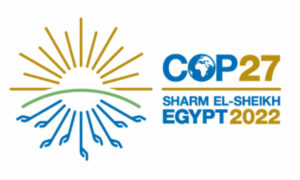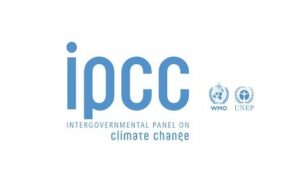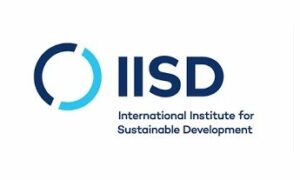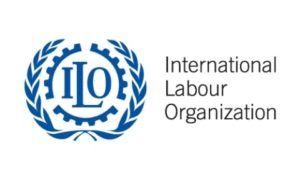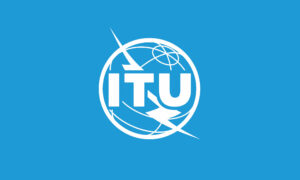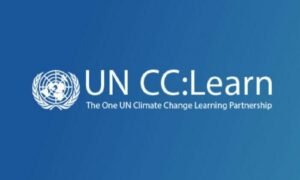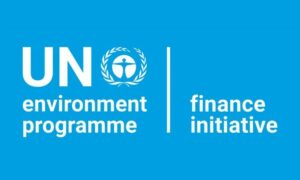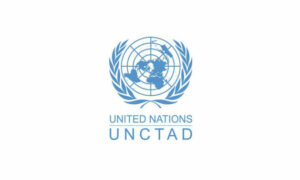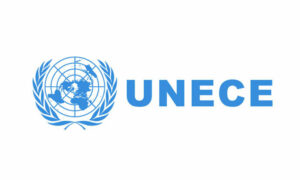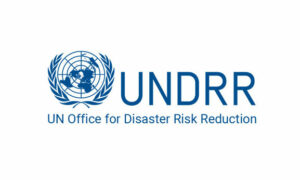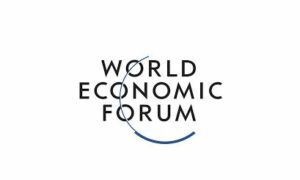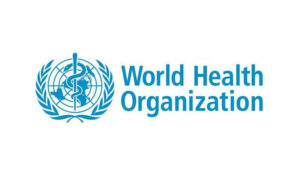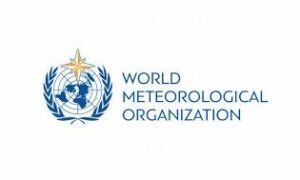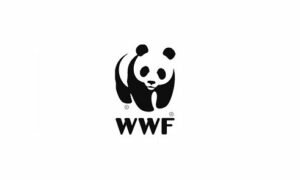Nouvelle
Towards UN Climate Conference | COP27
This page provides update on the 2022 UN Climate Conference and the involvement of International Geneva. In November 2022, the Government of the Arab Republic of Egypt hosted the 27th Conference of the Parties of the UNFCCC (COP 27), with a view to building on previous successes and paving the way for future ambition to effectively tackle the global challenge of climate change.
Towards UNFCCC COP27
In November 2022, the Government of the Arab Republic of Egypt is hosting the UN Climate Conference COP 27, with a view to building on previous successes and paving the way for future ambition to effectively tackle the global challenge of climate change. Meaningful progress must be made to address loss and damage beyond countries’ abilities to adapt as well as financial support for climate action, upheld the UN Secretary General at the 77th UN General Assembly in September 2022. Many key issues for COP27 are discussed through various fora in Geneva and actors from Geneva are actively engaged in the preparations of and support to the negotiations.
Geneva’s Engagement in COP27
Geneva-based organizations are highly active at COP27. Click on the boxes below to find out how each organization is participating in COP27, including side-events, media presence, and relevant reports. Organizations are listed in alphabetical order
Key Resources
On 27 October, UNEP launched the Emissions Gap Report 2022. The report is the 13th edition in an annual series that provides an overview of the difference between where greenhouse emissions are predicted to be in 2030 and where they should be to avert the worst impacts of climate change. Many more agencies have released major reports ahead and during COP27; find a list below.
The Role of Geneva
Organizations are listed in alphabetical order
Center for International Environmental Law (CIEL)
CIEL is committed to applying a human rights-based approach as a means to protect the peoples and communities on the frontline of climate change. In doing so, it works to design and integrate policies to safeguard rights and ecosystems and to ensure effective public participation within key climate institutions and mechanisms. CIEL also provide support and build the capacity of peoples and communities adversely affected by climate impacts and climate policies to support their direct participation in those decisions that affect their lives and livelihoods, including working with partners to develop new legal strategies to hold corporations accountable and accelerate the transition away from fossil fuels.
Earthjustice
Earthjustice works with partners to end the use of fossil fuels and bring about a swift and just transition to zero carbon emissions and 100% clean energy.
Geneva Climate Change Consultation Group (GeCCo)
GeCCco gathers civil society organizations working in Geneva to bring forward the human rights issues raised by climate change and to introduce these climate change issues in the work of the Geneva-based UN Human Rights Bodies. The GeCCco also keeps a close eye on the UNFCCC processes thanks to the NGO Working Group on Human Rights and Climate Change, the oldest and main coalition on this matter, to which a number of the participating organizations are also member.
Geneva Pledge on Human Rights and Climate Action
The Geneva Pledge on Human Rights and Climate Action is a voluntary initiative undertaken by countries to facilitate the sharing of best practice and knowledge between human rights and climate experts at a national level. In recognizing the injustice faced by the poorest and most vulnerable people who are disproportionately affected by the impacts of climate change, this diverse group of countries pledge to enable meaningful collaboration between national representatives in UNFCCC and the processes of the Human Rights Council. The practical and constructive initiative will help countries to better design climate action that is good for people as well as the planet.
Group on Earth Observations (GEO)
Earth observations relevant to climate action are not limited to weather or climate, but are much broader and include terrestrial and socio-economic variables. GEO makes available Earth observations in support of effective policy responses for climate change adaptation, mitigation and other specific provisions, working with partners to enhance global observation systems for climate action. GEO will be present at COP26 with a series of events to promote the role of Earth observations in providing actionable information for climate adaptation and mitigation.
Intergovernmental Panel on Climate Change (IPCC)
The IPCC was set up to provide an objective source of scientific information. In 2013, the IPCC provided more clarity about the role of human activities in climate change when it released its Fifth Assessment Report. It is categorical in its conclusion: Climate change is real and human activities are the main cause.
International Committee of the Red Cross (ICRC)
The ICRC works to adapt its response to support populations coping with the dual shocks of climate risks and conflicts. In 2020, the ICRC also released the report “When rain turns to dust” illustrating how countries mired in conflict are disproportionately impacted by climate variability and extremes, due to the limited adaptive capacity of people, systems, and institutions already coping with the consequences of conflicts.
International Emissions Trading Association (IETA)
The mission of IETA is to empower business to engage in climate action, advancing the objectives of the United Nations Framework Convention on Climate Change and the Paris Agreement as informed by IPCC science and establish effective market-based trading systems for greenhouse gas (GHG) emissions and removals that are environmentally robust, fair, open, efficient, accountable and consistent across national boundaries.
International Federation of Red Cross and Red Crescent Societies (IFRC)
The IFRC held its first-ever virtual climate summit, Climate: Red, on 9-10 September 2020. It brought together members, staff, youth activists, government officials, experts, and indigenous leaders from around the world to discuss how to tackle the climate emergency. Together with the ICRC, the IFRC has also led the development of a Climate and Environment Charter for Humanitarian Organizations to guide the sector as it responds to these crises and to rally collective action.
International Institute for Sustainable Development (IISD)
IISD is actively involved in the two main responses to climate change: adaptation and mitigation. It partners with countries to help them cope with a changing climate and transition to clean energy as quickly as possible. By backing major initiatives like fossil fuel subsidy reform and climate adaptation planning, IISD uses its expertise to lessen the flow and concentration of heat-trapping greenhouse gases and help people build a more resilient future.
International Labour Organization (ILO)
Spearheaded by the ILO it launched the Climate Action for Jobs Initiative by United Nations Secretary-General António Guterres. The initiative brings together governments, workers’ and employers’ organizations, international institutions, academia and civil society to place jobs at the heart of ambitious climate action and to promote a just transition.
International Telecommunication Union (ITU)
Through its Radiocommunication sector (ITU-R), Standardization sector (ITU-T) and Development sector (ITU-D), ITU covers the role of digital technologies within climate change, to tackle e-waste and facilitate energy efficiency.
International Union for Conservation of Nature (IUCN)
The IUCN assesses the impacts of climate change on species and ecosystems. Through its work on ecosystem-based mitigation, adaptation and disaster risk reduction, it also highlights the important role of nature-based solutions to climate change. It also works to ensure that climate policy and action are gender-responsive, socially inclusive and take into account to the needs of the most vulnerable.
Office of the United Nations High Commissioner on Human Rights (OHCHR)
As climate change threatens the effective enjoyment of a range of human rights, the OHCHR aims to ensure that environmental and climate policies and plans are implemented in accordance with international human rights standards. To help States, businesses and other duty-bearers meet this expectation, OHCHR’s Key Messages on Human Rights and Climate Change, outline key human rights obligations in the context of climate change. Since 2015, OHCHR has also organized annual Human Rights Council (HRC) panel discussions and produced analytical studies on various subjects on climate change and human rights.
Partnership for Environment and Disaster Risk Reduction (PEDRR)
PEDRR is a global partnership of 24 organizations that promotes ecosystem management as a key strategy to enable vulnerable communities and countries to reduce disaster risk and build resilience to disasters and climate change.
Platform on Disaster Replacement
Climate refugees are on the increase and the Platform on Disaster Displacement is a State-led initiative that aims to follow up on the work started by the Nansen Initiative and to implement the Nansen Initiative – Agenda for the Protection of Cross-Border Displaced Persons in the Context of Disasters and Climate Change, endorsed by more than 100 States in October 2015.
Regions of Climate Action (R20)
R20 works to support sub-national governments around the world to develop and finance low-carbon and climate resilient infrastructure projects in the fields of renewable energy, energy efficient lighting and waste optimization.
Special Rapporteur on Human Rights and Climate Change (SR Climate)
At the 48th session of the Human Rights Council in October 2021, the Human Rights Council adopted a resolution establishing the mandate of a Special Rapporteur on the promotion and protection of human rights in the context of climate change (resolution 48/14), whose mandate is to “study and identify how the adverse effects of climate change, affect the full and effective enjoyment of human rights.” At the 49th session of the Human Rights Council in March 2022, Ian Fry was appointed as the first SR Climate, who has outlined six thematic priorities (forthcoming link: A/HRC/50/39; advanced unedited version of the report) that he will focus on during his mandate:
- The promotion and protection of human rights in the context of mitigation, adaptation, and financial actions to address climate change, with particular emphasis on loss and damage;
- Addressing the human rights implications of climate change displacement including legal protection of people displaced across international borders;
- Exploring approaches to enhance climate change legislation, supporting climate change litigation and advancing the principal of intergenerational justice;
- Corporate accountability with respect to human rights and climate change;
- The protection of human rights through just transition for workers in industries that contribute to climate change; and
- Exploring the impacts of new technologies associated with climate change mitigation on human rights.
United Nations Office for Disaster Risk Reduction (UNDRR)
UNDRR oversees the implementation of the Sendai Framework for Disaster Risk Reduction 2015-2030, supporting countries in its implementation, monitoring and sharing what works in reducing existing risk and preventing the creation of new risk. As climate-related risks are increasingly affecting people around the world, UNDRR is also actively promoting climate adaptation to reduce these risks.
United Nations Economic Commission for Europe (UNECE)
The UNECE region is a major source of greenhouse gas emissions, responsible for 34% of the world’s CO2 emissions from fossil fuel combustion. The people of the region are increasingly feeling the impacts of climate change – from wildfires to flooding, heatwaves and drought. Through its norms, standards, conventions and policy assistance, UNECE provides key tools supporting countries in their climate change mitigation and adaptation efforts.
United Nations Environment Programme (UNEP)
The work of UNEP on climate action cuts across the fields of science, policy, technology and finance. It empowers countries to pursue low-emission development and boost their capacity to adapt and be resilient to climate heating. UNEP is also working to implement the Paris Agreement and its contributions include bringing science to policymakers, playing a leading role in transformative global partnerships, and helping dozens of countries develop national plans to cut greenhouse gas emissions. In addition, UNEP equips countries to seize new investment opportunities that reduce greenhouse gas emissions from deforestation and forest degradation and supports the development of new finance models to accelerate the transition to a green economy. Through the Climate Finance Unit, UNEP also focuses on supporting developing countries to access climate finance (directly and through accredited entities) from the Green Climate Fund (GCF), the Global Environment Facility (GEF), and the Adaptation Fund (AF) as well as through other bilateral or multilateral public sources.
United Nations Human Rights Council
The Human Rights Council has contributed to raising awareness of the links between human rights and climate change by successive and targeted clarifications of the ways climate change affects human rights, including through the adoption of a series of resolutions related to climate change and human rights. The OHCHR also published a factsheet on the “Frequently asked questions on human rights and climate change”
In a resolution (A/HRC/44/L.5) on human rights and climate change, the UN Human Rights Council decided to incorporate a panel discussion focusing on the adverse impact of climate change on the full and effective enjoyment of human rights by older persons and best practices and lessons learned in the promotion and protection of the rights of older persons. The Council also requested a study on the promotion and protection of the rights of older persons in the context of climate change, including their particular vulnerabilities, and to provide all the human and technical assistance necessary for the effective and timely realization of the above-mentioned panel discussion and the summary report thereon.
UN-REDD Programme
Since 2008 the UN-REDD Programme has been supporting 65 partner countries in their nationally led efforts to become “REDD+ ready” and qualify for results-based payments. Within the UN-REDD Programme, UNEP leads on private sector engagement, safeguards, knowledge management and communications. The Paris Climate Agreement also recognizes REDD+ and the central role of forests in Article 5. To date, 118 countries have included forest and land use in their Nationally Determined Contributions pledges.
World Business Council for Sustainable Development (WBCSD)
The Climate Policy Working Group members of WBCSD meet regularly to shape key messages, share insights and plan for events to bring the voice of business. Topical issues today include Paris Agreement implementation and ambition, carbon pricing and Science-Based Targets (SBTs).
World Economic Forum (WEF)
The WEF Climate Change Intelligence is a visual representation of climate change and provides an overview and the key trends affecting it, along with summaries and links to the latest research and analysis on each of the trends.
World Health Organization (WHO)
The WHO indicates that the world population is encountering unfamiliar human-induced changes in the lower and middle atmospheres and world-wide depletion of various other natural systems. Beyond the early recognition that such changes would affect economic activities, infrastructure and managed ecosystems, there is now recognition that global climate change poses risks to human population health. Climate change is emerging as a major theme in population health research, social policy development, and advocacy. Consideration of global climatic-environmental hazards to human health will become a central role in the sustainability transition debate.
World Meteorological Organization (WMO)
The WMO helps its members to monitor the Earth’s climate on a global scale so that reliable information is available to support evidence-based decision-making on how to best adapt to a changing climate and manage risks associated with climate variability and extremes. Climate information is essential for monitoring the success of efforts to reduce greenhouse gas emissions that contribute to climate change, as well as for promoting efforts to increase energy efficiency and to transition to a carbon-neutral economy.
WWF
WWF works to tackle the climate crisis in a variety of ways. From encouraging governments to implement more ambitious climate policies, to supporting the shift to renewable energy, to working with cities, businesses and communities to create a climate-resilient, net-zero future. WWF’s goal is to adaptively halve greenhouse gas emissions through a stark reduction in energy demand, an increase of at least 40% of non-hydro renewable energy in electricity mix and the implementation of nature-based solutions at scale which ensure people and nature resilience to climate change.
Learning
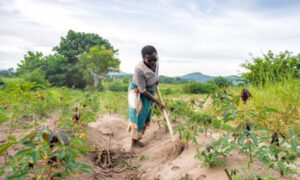
Ecosystem-based Adaptation: Working with nature to adapt to a changing climate
SDNS | 14 September 2022 | Online

Environmental Governance & Policy-Making
IHEID | 14 October 2022 | Maison de la Paix

MOOC | Global Artic
EPFL | Online
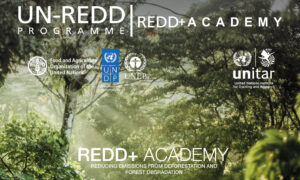
Fundamentals on REDD+
UN-REDD | Online
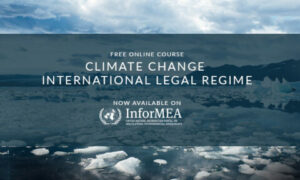
Climate Change International Legal Regime
InforMEA | Online

Introduction to Environmental Governance
InforMEA | Online
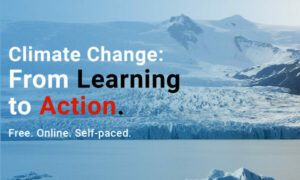
Climate Change: From Learning to Action
UN CC:Learn | Online
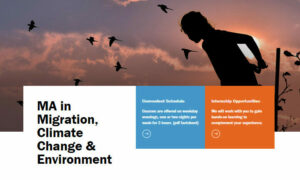
MA in Migration, Climate Change & Environment
Webster University Geneva
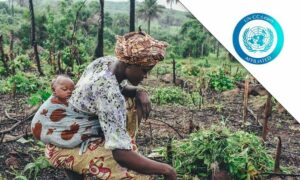
An Introduction to Climate Change and Human Rights
UN CC:Learn | Online
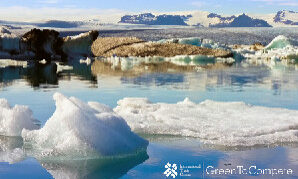
Becoming a Climate Resilient SME
ITC | 31 October 2022 | Online
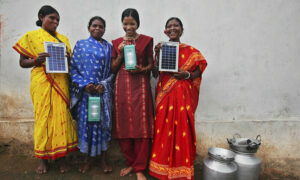
Gender Equality and Human Rights in Climate Action and Renewable Energy
UN CC:Learn | Online
Past GEN Events
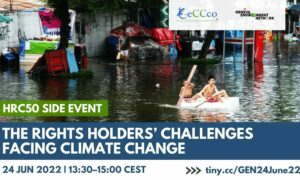
The Rights Holders’ Challenges Facing Climate Change | HRC50 Side Event
Geneva Climate Change Consultation Group, Geneva Environment Network | 24 June 2022
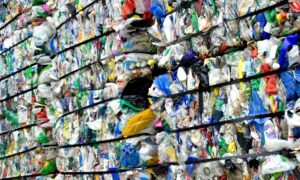
Plastics & Refuse-Derived Fuel: Fuel Product or Plastic Waste Export? | Geneva Beat Plastic Pollution Dialogues
International Pollutants Elimination Network, Geneva Environment Network | 9 June 2022
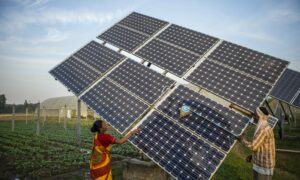
Clean Energy with Clean Conscience: The Importance of Human Rights, Health and Well-Being When Transitioning to Clean Energy for Sustainable Development
United Nations Office of the High Commissioner for Human Rights, World Health Organization, International Service for Human Rights, 2050Today, Franciscans International, Geneva Environment Network | 1 June 2022
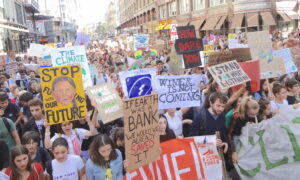
Celebrating the Right to a Healthy Environment: 50 Years of the Stockholm Declaration
Switzerland, Geneva Environment Network | 30 May 2022

Climate Tipping Points, Irreversibility and their Consequences for Society, Environment and Economies | Switzerland’s Proposal for an IPCC Special Report
Switzerland, Geneva Environment Network | 25 May 2022
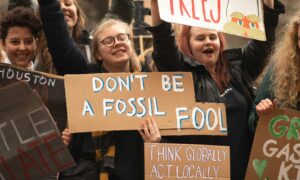
Subsidizing Fossil Fuels in Times of High Energy Prices | Fossil Fuel Subsidy Reform in Trade and Climate Discussions
International Institute for Sustainable Development, Friends of Fossil Fuel Subsidy Reform, Geneva Environment Network | 16 May 2022
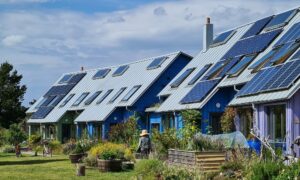
Briefing on the IPCC Climate Change 2022 Report: Mitigation of Climate Change
Geneva Environment Network | 8 April 2022

Geneva Stockholm+50 Dialogues | The Human Rights Council Contributions to Protecting Human and Natural Environment
France, Costa Rica, Earthjustice, Geneva Environment Network | 30 March 2022

